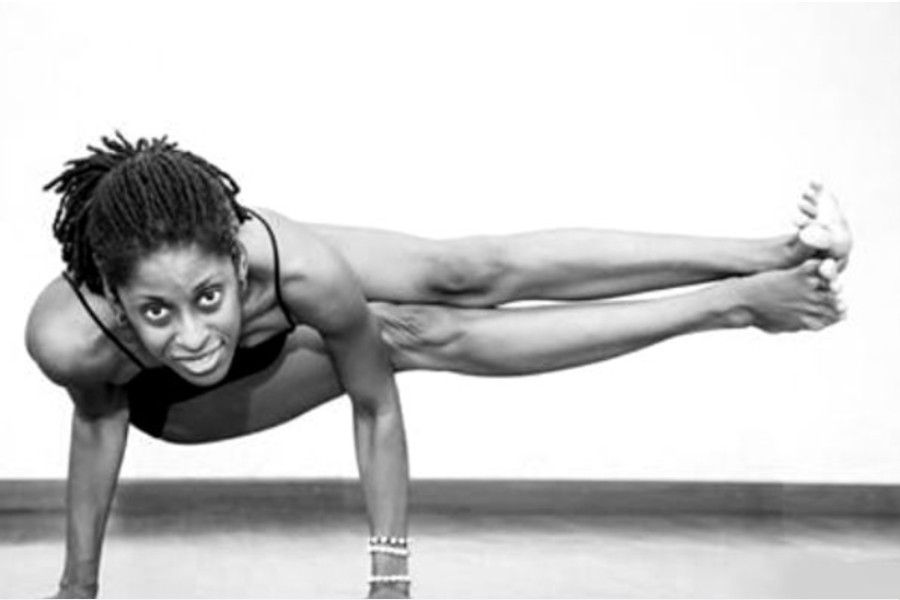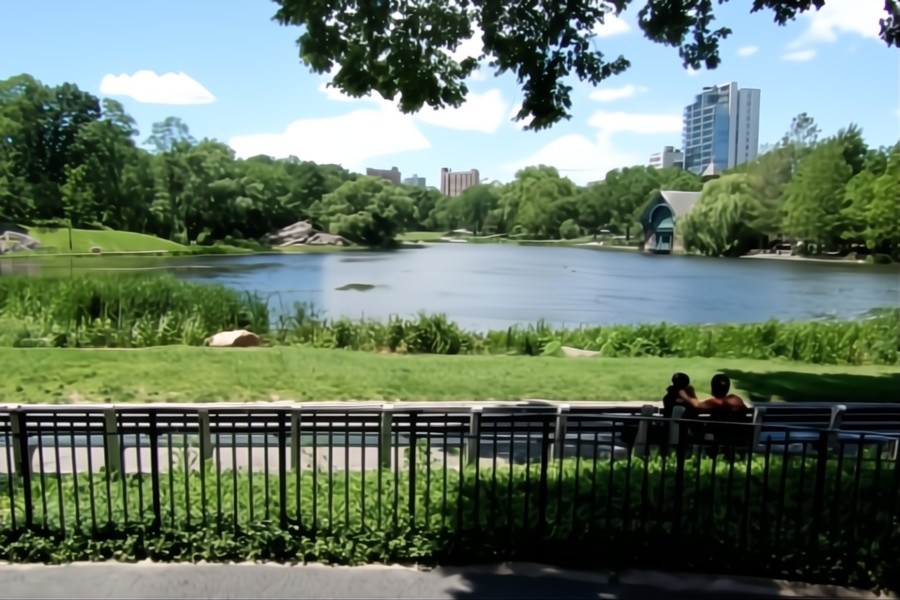 The Health Department today released the 2020 HIV Surveillance Annual Report, which shows continued progress toward ending the HIV epidemic in New York City. According to the report, 1,396 people were newly diagnosed with HIV in New York City in 2020, down 21% from 2019 and down 76% since 2001.
The Health Department today released the 2020 HIV Surveillance Annual Report, which shows continued progress toward ending the HIV epidemic in New York City. According to the report, 1,396 people were newly diagnosed with HIV in New York City in 2020, down 21% from 2019 and down 76% since 2001.
The Health Department shared 2020 HIV surveillance data and updates on the New York City 2020 Ending the HIV Epidemic Plan during this morning’s World AIDS Day 2021 event.
“The decline in new HIV diagnoses marks another milestone in our long fight against the HIV epidemic in New York City and represents a model for the nation,” said Health Commissioner Dr. Dave A. Chokshi.“While the fight against HIV has become more challenging in the past two years due to the COVID-19 pandemic, we remain focused on our efforts to reduce stigma, discrimination and inequities that put people at risk of HIV infection, particularly people of color.”
Men, women, and transgender people; Black, Latino, White, Asian/Pacific Islander, and Native American people; all age groups 13 years and older; and nearly all transmission categories experienced declines in new HIV diagnoses from 2019 to 2020. In addition to tracking new HIV diagnoses in the city, the Health Department estimates the number of new HIV infections each year, a key Ending the Epidemic metric. Estimated new HIV infections declined 29% from 2016 to 2020, with heterosexual women and men who have sex with men (MSM) experiencing particularly steep declines of 62% and 48%, respectively.
…92% were Black or Latina, and of all cisgender and transgender men newly diagnosed, 79% were Black or Latino. Of all men newly diagnosed with HIV in 2020, 59% were MSM; of all new diagnoses among MSM, 78% were among Black or Latino MSM, 79% of whom were ages 20-39 years.
While these data represent an important step toward ending the epidemic, inequities persist across many communities. Of all cisgender and transgender women newly diagnosed with HIV in 2020, 92% were Black or Latina, and of all cisgender and transgender men newly diagnosed, 79% were Black or Latino. Of all men newly diagnosed with HIV in 2020, 59% were MSM; of all new diagnoses among MSM, 78% were among Black or Latino MSM, 79% of whom were ages 20-39 years. And nearly half of New Yorkers newly diagnosed with HIV in 2020 lived in neighborhoods of high or very high poverty.
“Recent data showing New York City’s continued progress toward ending the epidemic are particularly meaningful, given that this year marks 40 years since the CDC first reported on cases of what we would eventually know as AIDS,” said Dr. Sarah Braunstein, Assistant Commissioner for the Health Department’s Bureau of Hepatitis, HIV, and Sexually Transmitted Infections. “As we commemorate World AIDS Day 2021, we must honor the legacy of HIV activists, whose compassion, tenacity, and insistence on government accountability brought us to where we are today. The Health Department will continue to center community voices as we enter the next phase of our ending the epidemic efforts, ensuring our work is more deeply rooted in social and structural determinants of health, intersectionality, and equity.”
The 2020 HIV surveillance data also reflect the impact of COVID-19 and should be interpreted accordingly, particularly in light of how the COVID-19 pandemic affected the availability and uptake of nonemergency, non-COVID-19-related health care services in New York City, including HIV services.
Reduced HIV testing and laboratory services were a contributing factor in the number of new HIV diagnoses reported in 2020, which is lower than expected based on previously observed declines.
In 2020, 40% of people newly diagnosed with HIV in New York City were virally suppressed within three months of diagnosis, down from 53% in 2019.
COVID-19 also affected outcomes across the HIV care continuum, particularly timely viral suppression after diagnosis. In 2020, 40% of people newly diagnosed with HIV in New York City were virally suppressed within three months of diagnosis, down from 53% in 2019.
Linkage to care within one month of diagnosis and viral suppression among people receiving HIV medical care remained stable. More information on the Health Department’s efforts to address New Yorkers’ HIV and sexual health needs during the COVID-19 pandemic is available on the Health Department’s webpage.
Yesterday, Mayor de Blasio also announced that New York City would be home to the first publicly recognized Overdose Prevention Center (OPC) services in the nation.
OPCs are safe places where people who use drugs can receive medical care and be connected to treatment and social services, and build on the legacy of harm reduction work – the City supported one of the first syringe exchange programs in the country to reduce HIV transmission.
OPCs and other harm reduction interventions that promote safer practices are key strategies to prevent the spread of HIV and hepatitis.
Today, on World AIDS Day 2021, as we formally complete our merger with Washington Heights Corner Project (WHCP) to become OnPoint NYC, we are here to provide all who use drugs and/or engage in sex work with the harm reduction services they need in Upper Manhattan and the South Bronx.
“In 1992, New York Harm Reduction Educators (NYHRE) became one of New York State’s first legal safer drug use exchanges and the direct successor to ACT UP’s grassroots effort to stem the rising tide of the HIV/AIDS epidemic and the Young Lords’ holistic treatment program,” said Sam Rivera, Executive Director of OnPoint NYC. “Today, on World AIDS Day 2021, as we formally complete our merger with Washington Heights Corner Project (WHCP) to become OnPoint NYC, we are here to provide all who use drugs and/or engage in sex work with the harm reduction services they need in Upper Manhattan and the South Bronx. Now more than ever, it is essential that leaders in government and philanthropy continue to invest in this work, so that we can provide person-centered services, education, supplies and safe spaces for all people who are disproportionately impacted by the HIV/AIDS crisis.”
“We are grateful for the support and partnership with New York City and New York State to end the HIV epidemic,” said Nadine Akinyemi, Chief Executive Officer of Bridging Access to Care, Inc. “On this World AIDS Day, we want to highlight that stigma and the traumatic experience associated with stigma continues to impact racial and ethnic minorities accessing health care, particularly among same-gender-loving persons of color and immigrants. The COVID-19 pandemic has added a layer of fear and isolation to engaging these already hard-to-reach groups. We must persist in our efforts to educate the importance of routine testing, PrEP, and PEP. I am pleased that the leadership in our government shares this view and continues to invest in our work.”
“World AIDS Day is a yearly reminder of how far we have come in the battle against ending AIDS, but also a day to remember those in our community who we have lost to the virus,” said Justin Toro, Practice Manager at Montefiore Medical Center’s The Oval Center. “We want to celebrate and honor those who paved the way for us to have the access to inclusive medical care and life-saving medications. Although we are seeing a decrease in new HIV infections, we continue to see a high rate of stigma and discrimination against those who are living with HIV; until we can eliminate these issues, we will continue to fight this battle in hopes for an HIV/AIDS-free generation.”
“World AIDS Day is time to reflect on the evolving needs of our patients, from diagnosis and treatment to psychosocial support,” says Migdalia Vientos, HIV Program Director for Sunset Park Family Health Center at NYU Langone. “The Family Health Centers has been at the forefront of HIV care and prevention for more than 30 years, and we are committed to ensuring that everyone has convenient access to ongoing, holistic care.”
The World AIDS Day 2021 event featured remarks from Health Commissioner Dr. Dave Chokshi, New York State Health Commissioner Dr. Mary Bassett, White House Office of National AIDS Policy Director Harold Phillips, and other State and City officials, as well as remarks and live performances by community partners. Commissioner Chokshi presented World AIDS Day awards to the following organizations that exemplified this year’s World AIDS Day theme: Building Health Equity and Resilience in the Face of Two Pandemics.
- Argus Community. Argus Community has provided holistic services – including mental health, substance use, housing, education, and case management – to people in the Bronx for over 50 years, to improve health outcomes for the communities they serve.
- Caribbean Equality Project. The Caribbean Equality Project is a community-based organization that empowers, advocates for, and represents Black and Latino, lesbian, gay, bisexual, transgender, gender non-conforming, and queer Caribbean immigrants in New York City.
- Children’s Aid. Children’s Aid was founded in 1853 to help children in poverty to succeed and thrive. They provide comprehensive supports to children, youth, and their families in targeted high-needs New York City neighborhoods.
- Consulate General of Mexico in New York. The Mexican Consulate continued to serve the community throughout the COVID-19 pandemic by providing culturally competent services and programming. La Ventanilla de Salud, the health program of the Mexican Consulate, is focused on facilitating access to health services and cultivating a culture of prevention, information, and participation in health care for Mexican immigrants.
- Hudson Valley Community Services. A small group of volunteers in Westchester County founded Hudson Valley Community Services in 1983 with assistance from the New York State Department of Health AIDS Institute in response to the burgeoning AIDS crisis. Their Emergency Financial Services Program provides one-time or short-term payments to assist eligible people with HIV with emergent needs to pay for essential utilities, housing, food, transportation, medication, and other emergency expenses.
The New York City 2020 Ending the HIV Epidemic Plan:
In March 2020, the Health Department released a new Ending the HIV Epidemic plan, the product of a nearly year-long community planning process to develop strategies and key activities for the next phase of the City’s ending the epidemic efforts.
A community advisory group to be launched in the coming months will guide the design and implementation of innovative HIV testing, prevention, care, and treatment initiatives tailored to specific New York City communities and needs.
As part of this work, the Health Department awarded funding to five organizations to adapt evidence-informed HIV care models that support communities most affected by HIV.
In August, the Health Department also announced the next phase of the PlaySure Network initiative, which will support health care and supportive service agencies to deliver a comprehensive health package of HIV prevention services using an equity-focused, client-centered one-stop-shop model.
Become a Harlem Insider!
By submitting this form, you are consenting to receive marketing emails from: . You can revoke your consent to receive emails at any time by using the SafeUnsubscribe® link, found at the bottom of every email. Emails are serviced by Constant Contact








